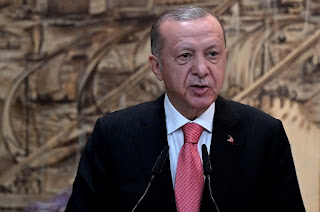
Accusations exchanged between Bashagha and Dabaiba over the victims of the Tripoli clashes
Today, Sunday, the Prime Minister of the Libyan government designated by Parliament, Fathi Bashagha, blamed the Prime Minister of the Libyan National Unity Government, Abdel Hamid Dabaiba, for the recent clashes in Tripoli, which resulted in the killing of 32 people.
Clashes have continued in Tripoli, Libya, since Friday, between forces loyal to the Bashagha government, which won the confidence of Parliament last March, and others loyal to the Dabaiba government, which stemmed from political agreements sponsored by the United Nations.
A statement issued by Bashagha's office said today, "We confirm that the so-called Abdel Hamid al-Dabaiba ... and his armed gangs are responsible for the blood that was shed and the money looted, and are responsible for what will happen," accusing the Dabaiba government of "clinging to power and not accepting the will of the Libyans and the principle of deliberation." peaceful authority.
On the other hand, the head of the Libyan National Unity Government, Abdel Hamid al-Dabaiba, confirmed that a "coup group" had mobilized on the borders of Tripoli from its eastern, southern and western borders, but the "aggression" was defeated.
Commenting on the renewed clashes in Tripoli, Dabaiba said, in a televised speech today, that "the coup group mobilized on the western, southern and eastern borders of Tripoli and booby-trapped the capital's neighborhoods."
"The parallel government project has failed and the Libyan people refuse to extend it," he added.
Earlier today, the Libyan Presidential Council called for the country to be spared any possible war, considering that "every weapon is directed at the chests of its countrymen, and that innocent women, men and children are at the forefront of its victims, and that its fire will damage private and public property."
The fighting has raised fears of a wider conflict in Libya due to the political standoff between Prime Minister Abdel Hamid Dabaiba in Tripoli and Fathi Bashagha, who is seeking to install a new government in the capital. This is the second attempt by Bashagha to seize Tripoli since May.
And the Ministry of Health stated, earlier today, that "32 people were killed in the fighting yesterday, Saturday, and 159 others were wounded."
Calm prevailed in the Libyan capital, in the early hours of Sunday morning, after a day of the heaviest clashes there in two years, killing 32 people and wounding 159 others, at a time when forces allied with a parliament-backed administration failed to expel the Tripoli-based government.
The city's roads were crowded with cars, shops opened, and people removed broken glass and other debris left by Saturday's violence, while burning cars were scattered in some streets in central Tripoli.




























































